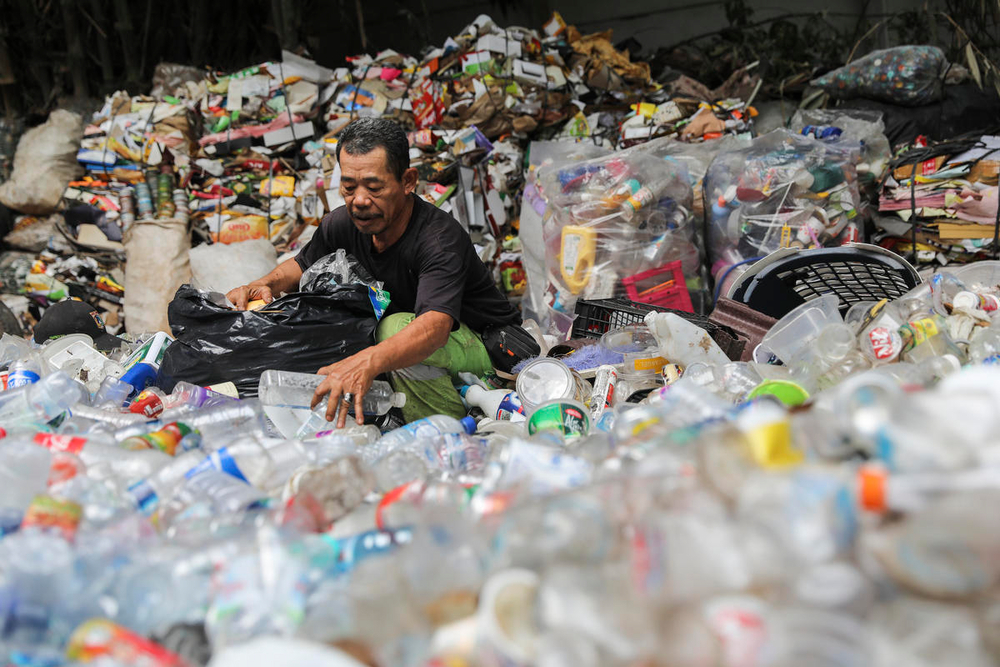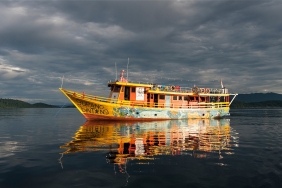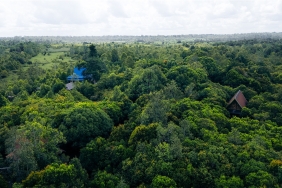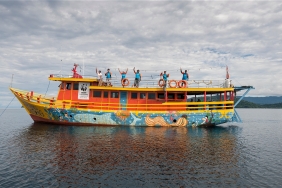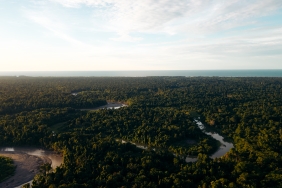SUPPRESSING THE USE OF SINGLE-USE PLASTICS THROUGH YOUTH ACTIVIST PROGRAM
The world is already facing a dire situation due to climate change. Countries around the world have been paying serious attention to the issue of climate change. The parable "The Earth is no longer friendly" describes the chaos in this world. Bad human activities are one of the factors that exacerbate the impact of climate change such as the excessive use of plastics.
The use of plastic has become a daily necessity for humans that cannot be separated. This is because plastic is very easy to find, and use, and relatively cheap.
Based on data from the Ministry of Environment and Forestry through the National Waste Management Information System (SIPSN) in 2022, the most waste comes from food waste as much as 40.3 percent, and plastic as much as 18.1 percent, where the waste comes from households with a percentage of 38.3 percent. Meanwhile, the waste generation was 36,190,195.05 tons/year (Ministry of Environment and Forestry, 2022). From these data, it is known that the rate of use of plastic waste and food waste in Indonesia is very high.
Of course, Indonesia is one of the largest contributors of waste in the world. The consumptive nature of humans coupled with the lack of knowledge to manage waste has made matters worse. Wise management of household waste is still not practiced by Indonesians. The lack of awareness of the dangers of excessive plastic waste has made people indifferent to its use and management. It is hard to imagine how the earth, countries, and Indonesia will fare if the amount of plastic waste is increasing. Therefore, synergism is needed for every element from the individual to the group level. It is this synergism that has one common goal to reduce plastic waste in Indonesia.
Youth Activist Plastic Smart Cities is a program initiated by WWF-Indonesia in collaboration with Yaksa Pelestari Bumi Berkelanjutan (YPBB). This program aims to invite young people to become agents of change in the nation by campaigning for sustainable or environmentally friendly living by reducing the use of plastic waste. This program targets young people who live in Jakarta, Bogor, Depok, Tangerang, and Bekasi (Jabodetabek).
The involvement of young people as agents of change is a very appropriate step because it is early to sensitize young people regarding the use and management of plastics wisely. Excessive use of single-use plastics will lead to waste generation. The decomposition of single-use plastics takes a very long time, up to hundreds of years.
Many negative impacts will occur such as environmental pollution, sources of disease, and global warming due to the burning of plastic waste. Therefore, through this program, young people are trained to be able to control plastic waste. Measurements are made every month as a form of self-control over the use of single-use plastics, aiming to reduce the rate of use at the individual level. The use of drinking bottles, misting, and refillable materials can be a solution to reduce plastic waste. Not only that, the youth activists are also taught how to manage food waste (organic) with composting methods. One of the youth activists in 2023 managed to reduce waste by a percentage of 100 percent through the comparison of the first and second individual-level measurements in this program.
Plastic waste is a very complex problem that has the potential for multidimensional impacts. This waste problem can exacerbate the impact of climate change. For this reason, it is hoped that the community will work together to suppress the use of single-use plastics. This can be done through the concept of circular economy with the 5R principle, namely rethink, reduce, reuse, recycle, and repair. This success will benefit the current and next generation.
Imagine if all young people in Indonesia did the youth activist program, how much plastic waste would be reduced? It will reduce the percentage of plastic waste. Therefore, it is very necessary to synergize together to maintain a better earth. The earth will be passed on to new generations as successors. As the current generation, we should always maintain the greenery of the earth by living sustainably to create a quality life. Because in fact, the quality of life of future generations is determined by those of us who live in the present.
Source of Data: Ministry of Environment and Forestry. (2022). National Waste Management Information System (SIPSN). Obtained on December 2023, from the Ministry of Environment and Forestry Website: https://sipsn.menlhk.go.id/sipsn/
.

